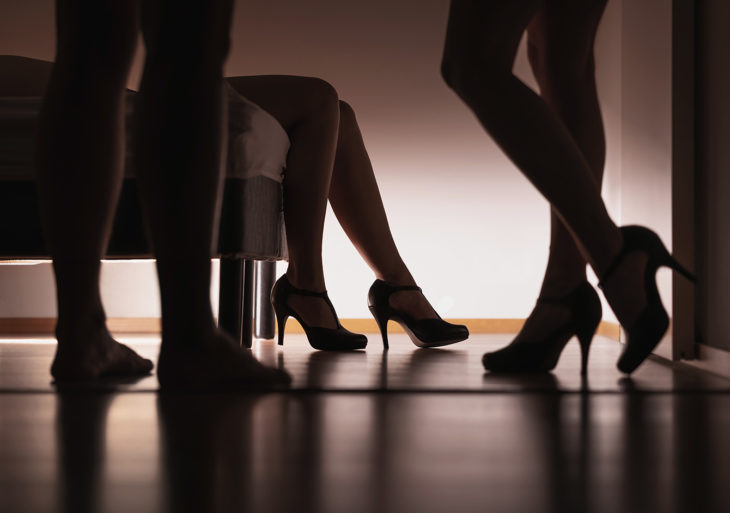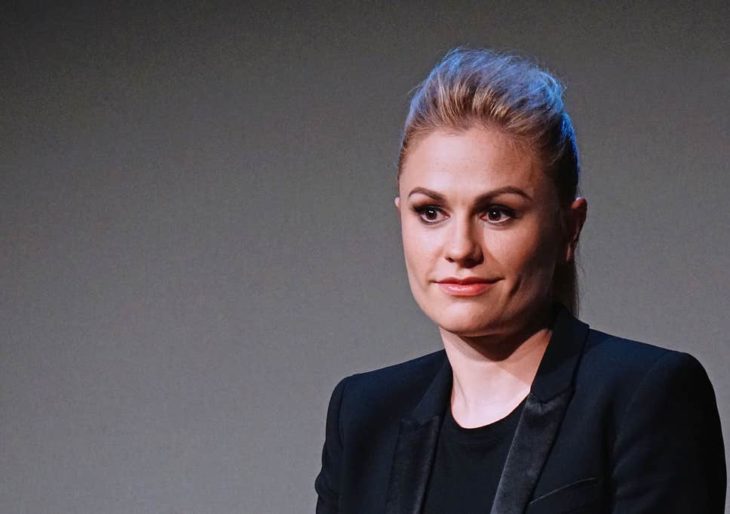How much should your family know about your sex life? Most straight people will probably say “not much,” given how our heteronormative culture just assumes most of us are screwing opposite sex partners behind closed doors. But lots of other people — I’m talking gay, bisexual, polyamorous or kinky folks — may feel like openness and acceptance of their sexuality is openness and acceptance of themselves. Yes, sexuality is very personal. But keeping info private which others happily flaunt can make a person feel like she’s keeping a big ol’ shameful secret.

Source: Blick
Such is the conundrum of a bisexual woman married to a man who wrote to Slate’s advice columnist Dear Prudence, asking if she should “come out” to friends and family.
Here’s the woman’s question:
I am a happily married, 27-year-old mother of two. I have recently revealed to my husband that I am bisexual, something I have only recently admitted to myself. He is completely supportive and we agreed that this does not change anything in terms of our monogamy. The only issue is that he thinks it would be irrelevant to come out to friends and family since I am in a heterosexual marriage. I know that my family will be accepting, however, now I’m worried that he is right and it would seem out of place to make such a revelation.
I can absolutely relate to this woman: “passing” as straight to outsiders while self-identifying completely differently. Your sexuality may not seem like it should be others’ concern, and to a certain degree it isn’t. But precisely because sexuality is so personal, it can be a big deal to you. Speaking from experience, there’s definitely confusion about how much to disclose and why to disclose it. There’s a fear that if you suddenly “come out” late(r) in life, you could be dismissed as “wanting attention,” going through a “phase,” or worse, having a “midlife crisis.”

Source: Pinterest
Keeping silent, however, can feel as if your bisexual identity is invisible. Personally, I am pretty open about my bisexual leanings and my kinkiness to my nearest and dearest. For me, it was important that I could be honest and transparent about my dating adventures with my close girl friends and guy friends, my coworkers, and the sister with whom I am closest. Of course, I varied details based on the person out of tact: girl friends always want juicy gossip, while my sister, not so much. But no one was especially shocked and of it made anyone feel awks, I don’t know nor do I particularly care.
Dear Prudence does not quite agree. “[Y]ou are confusing your personal sexual exploration with a social imperative,” Prudence wrote. “It would be one thing if you left your marriage because you were pursuing relationships with women. That would be worth talking about—if you wanted to—as a way of explaining the dissolution of your marriage.” Prudie went on to continue that since the bisexual letter writer is planning to stay married to her husband and remain monogamous, she could keep her sexuality private. The announcement would be found by others not to be “illuminating,” Prudie wrote, but rather “discomforting.”
I have to strongly disagree with Dear Prudence here. Sure, there’s no social imperative to reveal one’s sexuality to others. But don’t most people want to really know their loved ones? This is how the letter writer seems to want to be known, even if she intends to stay monogamous with her husband. Her sexual revelation actually could be quite illuminating; it’s impossible to know how coming out of the closet as bi could help other closeted folks that she knows. Unless her friends or family are Bible-thumping homophobes (which we have no reason to believe they are), there isn’t any reason to assume hellfire will rain down. And no, CPS can’t and won’t take away her children because she thinks Rachel Maddow looks cute.

Source: The Independent
Besides, one has to wonder whether causing “discomfort” is such a bad thing in the first place. As Old Fart Larry King recently proved while interviewing bisexual actress (and married-to-a-man) Anna Paquin, bisexuality is largely misunderstood. And while many of us know folks in our own lives who are openly gay, a study last year presented at the American Public Health Association found that 15 percent of people don’t believe bisexuality exists. It could actually be humanizing for the letter writers’ friends and relatives to know someone who is out of the closet as bi.
Don’t misunderstand and think that I am dismissing possible good reasons to keep such revelations private. My disinterest in talking about kink, and to a lesser degree bisexuality, with some family members is mostly due to not wanting to hear rude comments about it. Because sexuality is so personal, it can be profoundly ANNOYING when others don’t understand (let alone accept it). The letter writer may, too, have reasons she wants to keep her sexuality private. But fear of making others uncomfortable shouldn’t be one of them.
Original by Jessica Wakeman
